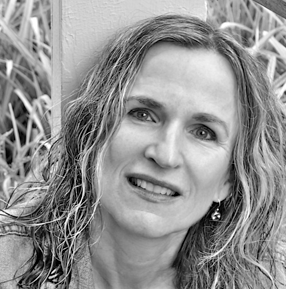 An excerpt from the short story, “Floodgate,” by Tracy Winn (fiction, ’02) published at The Harvard Review Online:
An excerpt from the short story, “Floodgate,” by Tracy Winn (fiction, ’02) published at The Harvard Review Online:
Floodgate
Inside this barn, I could be fooled into thinking everyone is where they’re supposed to be. All I hear is the milking machine. Milk sloshes into the glass tank, and the cows breathe. It’s humid tonight. The cows’ breath blows out like steam under the bare light bulbs. Everything seems simple in here. The cats know it. They lick their paws and curl up on hay bales. I could almost believe we’re all safe. It feels safe with smells you can count on, hay, manure, piss. But take a look out the door and see what was destroyed all around us in this one day.
The barn’s okay. The flood didn’t crap up the white trim, and the tall part where the pigeons get in still points toward heaven. Dickinson Farm has been the only dairy farm in the valley for a while now.
Mikey says I am one lucky SOB to have this job as a farmhand. Or, she says, maybe the Dickinsons are lucky. They could’ve rented a backhoe, but that would’ve cost them. That’s her joke about how strong I am.
The guy on the radio says, Who else could punish the gays with storms like today’s but God? He did with AIDS, and 9/11, and now this flood. My boss, Don, turns off the radio and says not to believe everything I hear. Think it through, Tyler, he says. What is the evidence? What can you be sure of?
Mikey says I’m no philosopher. Mikey says to make a list when it’s hard to think.
1. Mikey is missing.
2. Yesterday, I did something I regret so bad I can hardly think of anything else.
3. Today a hurricane came to the mountains.
4. Hurricanes don’t belong in the mountains.
5. The guy on the radio says that everything that happened is part of God’s plan.
It’s hard to believe that this morning the storm just seemed like any old heavy rain. While I fed the calves their bottles, I watched the raindrops sliding down the edge of the barn roof near where the spiders hang. Drips flew off like in the TV ad for joining the Marines. One drop after another bailed out into the air and was gone. Just as gone as Mikey. […continue reading here]
 An excerpt from “The Hotel Eden” by Beverly Bie Brahic (poetry, ’06), published at The American Journal of Poetry:
An excerpt from “The Hotel Eden” by Beverly Bie Brahic (poetry, ’06), published at The American Journal of Poetry:










